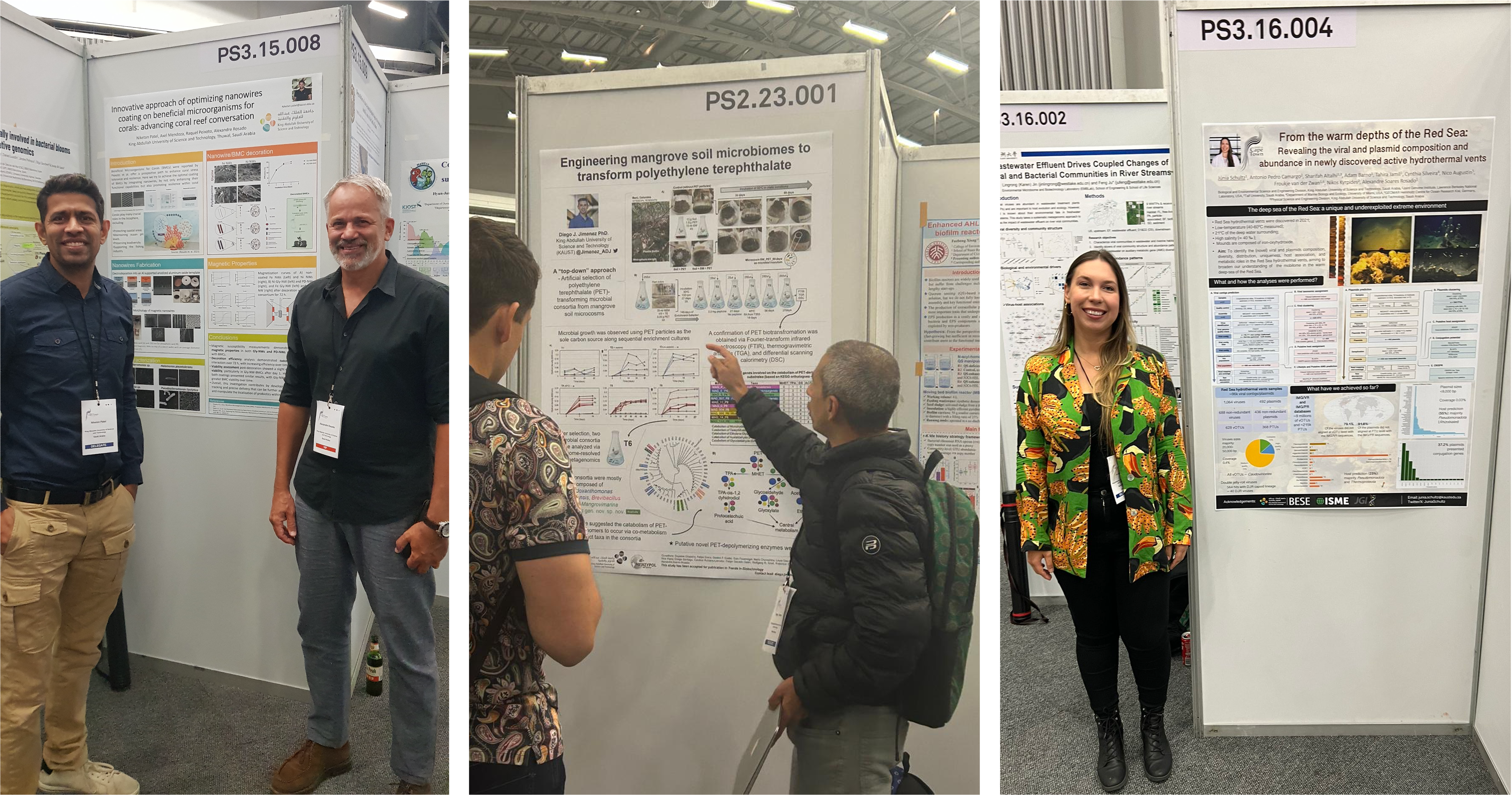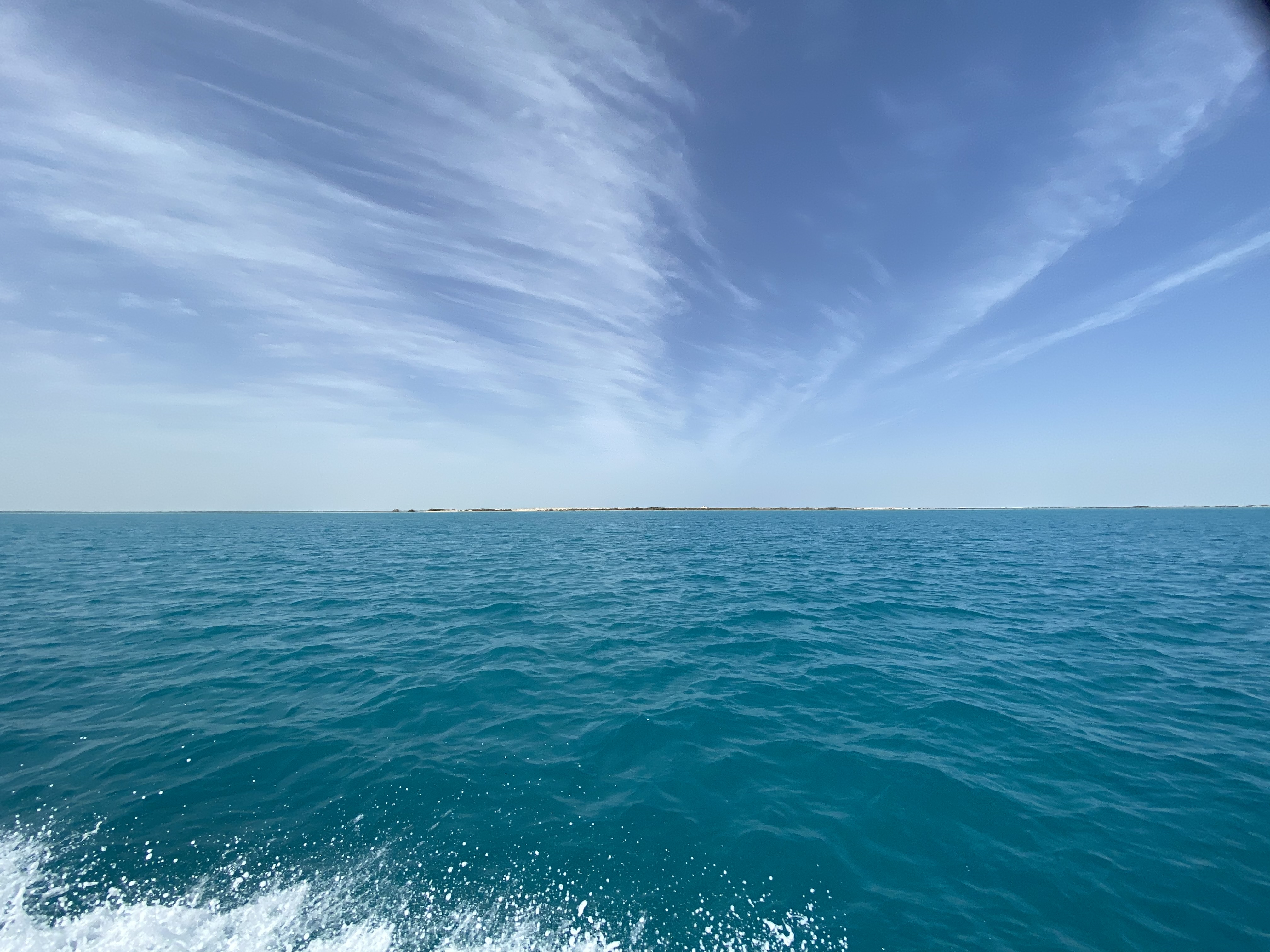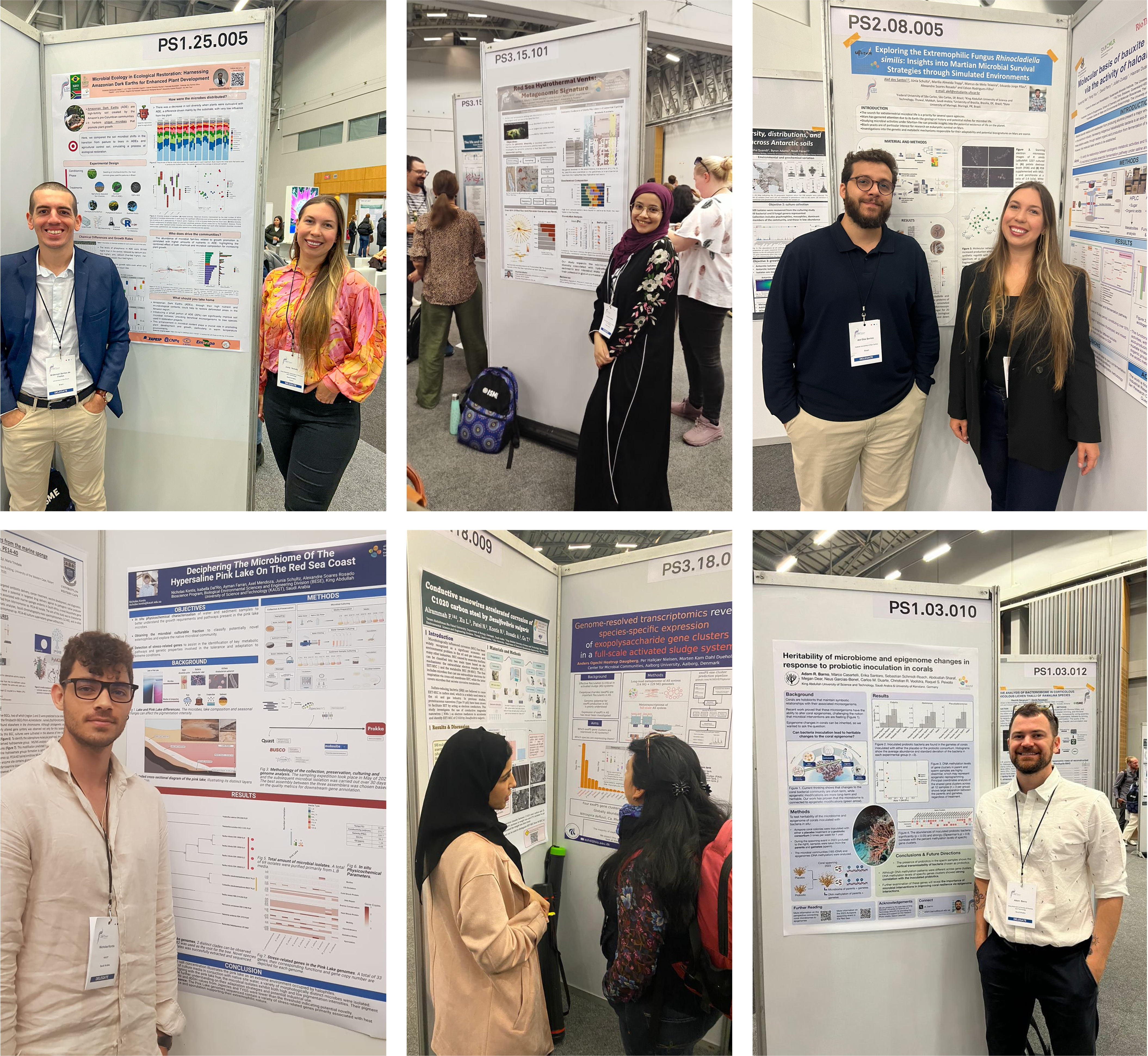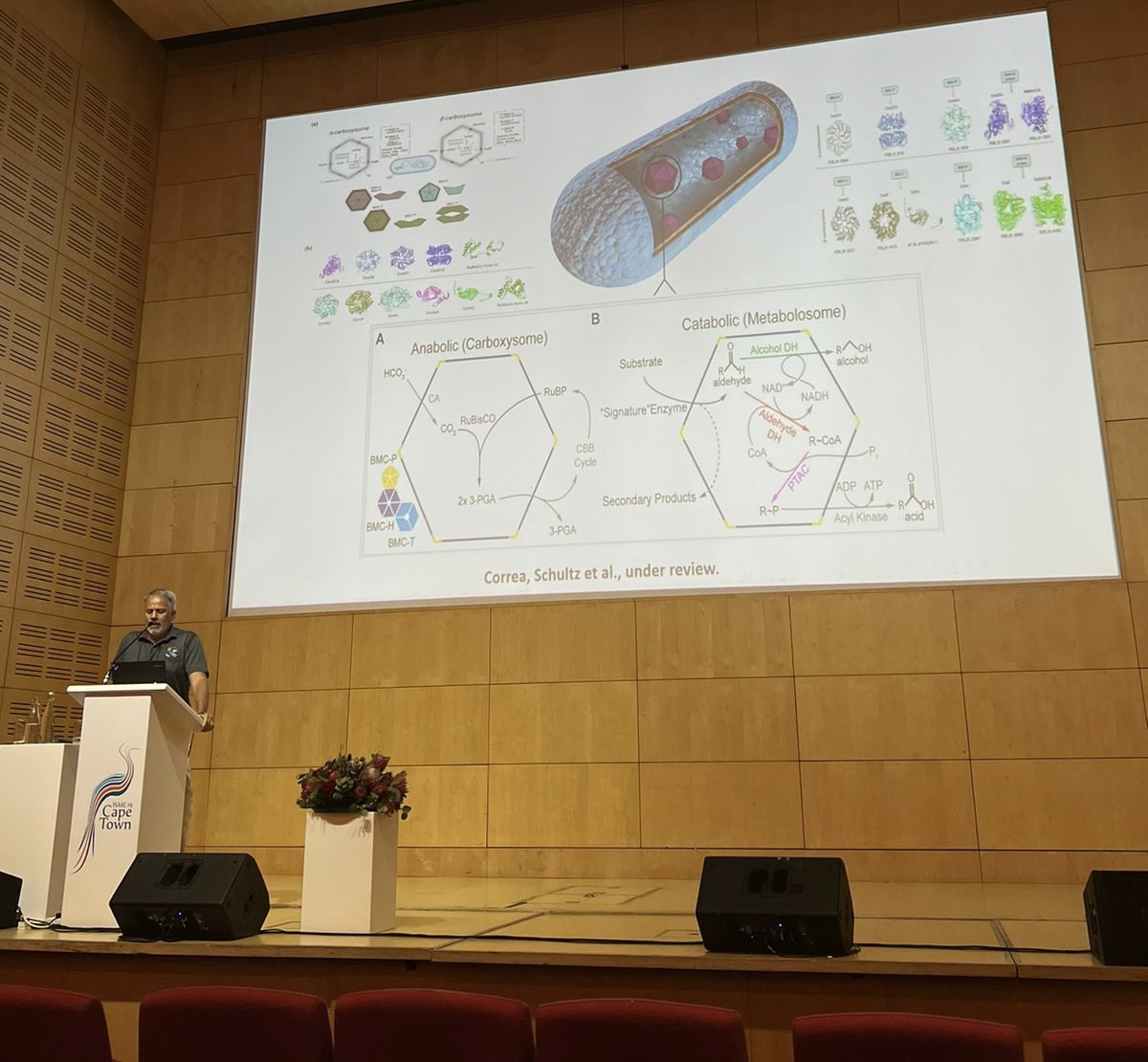Our Research Scientist, Dr. Niketan Patel, presented a poster titled "Innovative Approach to Optimizing Nanowire Coating on Beneficial Microorganisms for Corals: Advancing Coral Reef Conservation." In the accompanying photo, Dr. Patel is seen with Prof. Alexandre Rosado, sharing a light moment during the event.
Dr. Diego J. Jiménez presented his poster on "Engineering Mangrove Soils Microbiomes to Transform Polyethylene Terephthalate." He was also honored with the SeqCode Prize, which recognizes his work in prokaryotic systematics and his significant contributions to the advancement of this field. Congratulations, Diego!
Dr. Júnia Schultz, leader of the Extremophile Team at MEGB, presented her research on viruses and plasmids from newly discovered hydrothermal vents in the Red Sea. Her work, conducted during her stay at the Joint Genome Institute (JGI) in Berkeley, California, is the first to explore the mobilome of this environment. Dr. Schultz thanks her colleagues and collaborators for their support.

19-ISME: our senior staff presenting their latest results. From left to right: Dr. Niketan Patel, Dr. Diego J. Jiménez and Dr. Júnia Schultz
Nicholas Kontis, a PhD student and a member of the Extremophile Team, led a sampling expedition to a previously unexplored hypersaline lake on the southwestern Red Sea coast. His research reported the culturable fraction of bacteria and fungi. An adapted culturing methodology resulted in various pigmentation patterns and potentially novel species. Nicholas also identified stress-related genes in the curated genomes of selected bacteria, illustrating their adaptive strategies and resilience to extreme conditions.
Sharifah explored the hidden world of the Deep Red Sea hydrothermal vents, uncovering the vast microbial diversity that plays a crucial role in Earth's biogeochemical processes. At ISME19, she presented the key genes involved in the dissimilatory metabolism of carbon, iron, sulfur, arsenate, and manganese. Her research revealed over 85% novel microbial genomes, offering new insights into their role in global elemental cycling. Sharifah's work uncovers the genomic diversity and elemental cycling potential of microbes living in one of Earth's most extreme environments.
Farah and Adam, both members of the MEGB team, also presented their research at ISME19 on "Conductive Nanowires Accelerated Corrosion of C1020 Carbon Steel by Desulfovibrio vulgaris" and "Heritability of Microbiome and Epigenome Changes in Response to Probiotic Inoculation in Corals," respectively, contributing to the lab's representation at the event.
MSc. Anderson Santos de Freitas, a visiting PhD student from Universidade São Paulo, presented his work on how microbes from Amazonian Dark Earths (ADE) can significantly enhance tree growth in ecological restoration. His findings reveal that incorporating 20% ADE can increase tree height and root size by 2-3 times. More on this exciting research can be found in
Frontiers in Soil Science.
Alef dos Santos, a former visiting PhD student at MEGB, also presented his research at ISME19, which he developed during his one-year internship. His study centered on the extremophilic fungus Rhinocladiella similis, exploring its potential as a biological model for astrobiological research. Alef's work provided valuable insights into the survival strategies of this organism, particularly its ability to withstand harsh conditions analogous to those found on Mars.





